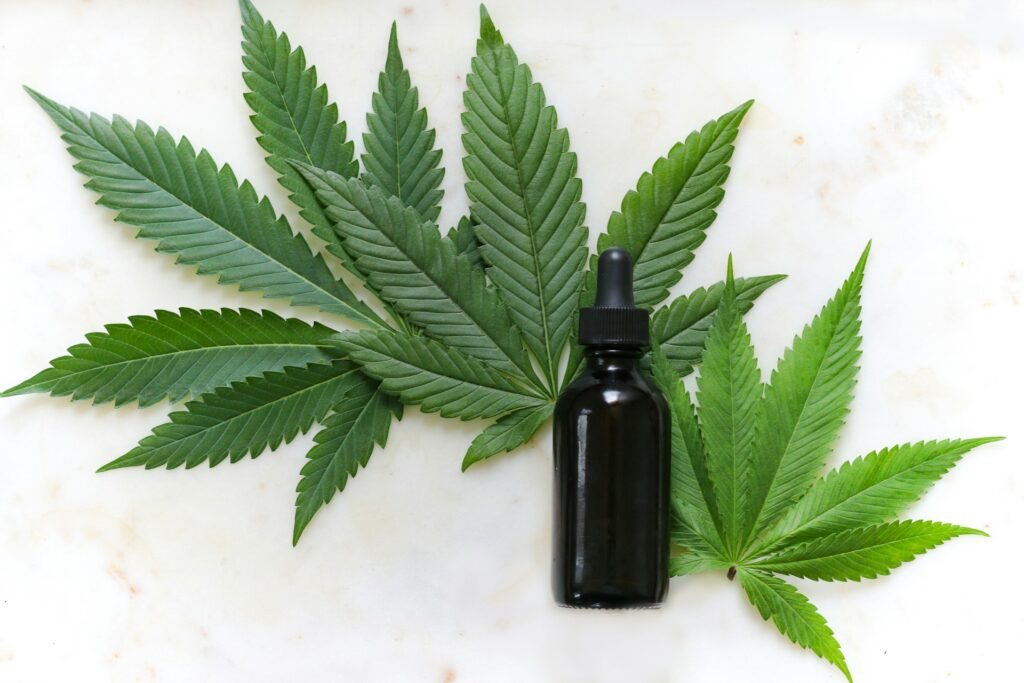A study by the University of Colorado Boulder found that CBD-rich cannabis products can significantly alleviate anxiety more effectively than THC-dominant products. The findings highlight the potential benefits of CBD in treating anxiety disorders, suggesting a need for further research to explore cannabis’s long-term effects and its role as an alternative to traditional anti-anxiety medications.
Cannabis Products Rich in CBD May Effectively Ease Anxiety


A recent study by the University of Colorado Boulder found that cannabis products rich in the non-intoxicating compound CBD (cannabidiol) can more effectively alleviate anxiety symptoms than products high in THC (tetrahydrocannabinol), without the potential side effects.
The study, published in the journal “Cannabis and Cannabinoid Research,” is the first randomized test to examine the impact of legal, commercially available cannabis products on anxiety symptoms.
For more news like this, along with all the latest in legalization, research, and lifestyle, download our free cannabis news app.
Growing Interest in Cannabis Among Adults
The study indicates that one in five adults in the USA suffers from anxiety disorders, making it the most common mental illness in the country. This has led to an increase in prescriptions for anti-anxiety medications. “We need more data to make definitive statements about long-term, beneficial effects, but the short-term effects were very clear: CBD was associated with relief in tension and anxiety with limited harm,” said lead author Cinnamon Bidwell, a professor in the Department of Psychology and Neuroscience and at the Institute for Cognitive Science.
First Study of Its Kind
Adults identify anxiety as one of the top three medical reasons (alongside sleep and pain) for turning to cannabis for relief. However, previous research on their effectiveness has been mixed. Some suggested that frequent use of cannabis or the use of potent THC-rich products could worsen anxiety in the long run. Other studies have shown that adding CBD to THC-rich products could counteract some of their negative effects, including disorders and paranoia that may occur right after use.
Surprising Results
To better understand the distinct short- and long-term effects of CBD and THC (the two main cannabinoids, or active ingredients of cannabis), the research team recruited 300 people with anxiety: 42 were non-cannabis users; 258 had tried it at some point. The larger group was assigned to use one of three flower products: a THC-dominant product (24% THC and 1% CBD); a CBD-dominant product (1% THC, 24% CBD); or a product with 12% CBD and 12% THC.
Over four weeks, participants could use the cannabis products as often and in as much quantity as they wanted. On average, study participants used their assigned products three times a week.
At the end of the study period, all four groups reported reduced anxiety. However, the cannabis groups noted greater reductions in perceived anxiety than the non-cannabis group, and those using CBD-dominant products showed the greatest improvement.
“These findings suggest that THC did not increase anxiety in the long term and that CBD-dominant forms of cannabis were associated with immediate tension reduction, which may translate into long-term reduction in anxiety symptoms,” said Gregory Giordano, a research professional assistant at CU Center for Health and Neuroscience, Genes and Environment (CUChange).
Bidwell noted that CBD has greater anti-inflammatory properties than THC, so it’s possible that CBD-dominant products may reduce anxiety by alleviating inflammation in the brain and nerves. However, even a small amount of THC – 1% – can also quickly impact mood.
“Our study suggests that CBD products can provide relief in anxiety at the moment for adults who use them, and perhaps in the long term, significantly and without the need to produce the same risks or harms associated with THC or prescription medications,” said Bidwell. “We need more data before we can make final recommendations, but these are promising news.”
Conclusion and Future Research Directions
In summary, this study provides important clues about the potential of CBD-rich cannabis products as a means of alleviating anxiety. Although further research is needed to make definitive recommendations, these results are promising for individuals suffering from anxiety disorders. This opens the door to further research into the therapeutic possibilities of cannabis, especially in the context of easing anxiety without the risk associated with traditional anti-anxiety medications or the side effects related to THC.
—
(Featured image by Kimzy Nanney via Unsplash)
DISCLAIMER: This article was written by a third-party contributor and does not reflect the opinion of Hemp.im, its management, staff, or its associates. Please review our disclaimer for more information.
This article may include forward-looking statements. These forward-looking statements generally are identified by the words “believe,” “project,” “estimate,” “become,” “plan,” “will,” and similar expressions. These forward-looking statements involve known and unknown risks as well as uncertainties, including those discussed in the following cautionary statements and elsewhere in this article and on this site. Although the company may believe that its expectations are based on reasonable assumptions, the actual results that the company may achieve may differ materially from any forward-looking statements, which reflect the opinions of the management of the company only as of the date hereof. Additionally, please make sure to read these important disclosures.
First published in Fakty Konopne, a third-party contributor translated and adapted the article from the original. In case of discrepancy, the original will prevail.
Although we made reasonable efforts to provide accurate translations, some parts may be incorrect. Hemp.im assumes no responsibility for errors, omissions or ambiguities in the translations provided on this website. Any person or entity relying on translated content does so at their own risk. Hemp.im is not responsible for losses caused by such reliance on the accuracy or reliability of translated information. If you wish to report an error or inaccuracy in the translation, we encourage you to contact us.



Comments are closed for this post.